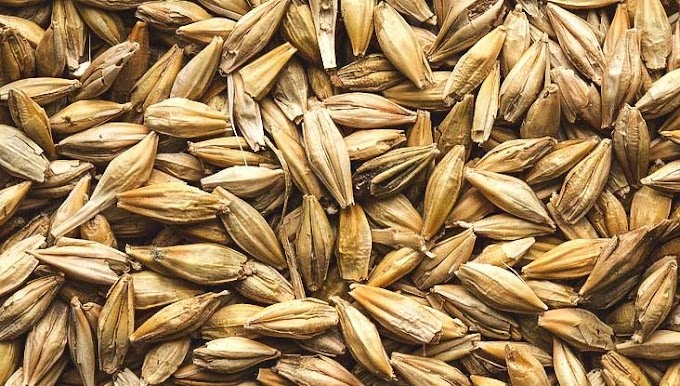Peaches Are Very Beneficial for Human Body | Take One or Two Peaches a Day For Good Health
Description of Peaches
The Peach is a juicy and sweet fruit that is native to China and belongs to the Rosaceae family. It has fuzzy, velvety skin that ranges in color from yellow to orange-red, and its flesh is soft and pulpy with a delicate aroma. The flesh is usually a pale yellow or orange color, and it surrounds a large, hard pit in the center of the fruit.
Peaches are widely consumed around the world and are often eaten fresh, canned, or used in a variety of culinary preparations, including pies, jams, and sauces. They are also a popular ingredient in cocktails and smoothies. In addition to their delicious flavor, peaches are a good source of dietary fiber, vitamins C and A, and potassium.
Peaches are typically in season during the summer months but can be found year-round in many grocery stores, either fresh or frozen. When selecting peaches, it's best to choose ones that are firm but slightly soft to the touch, with a fragrant aroma. Overripe peaches may be too soft and may have a mushy texture, while unripe peaches may be hard and lack flavor.
Peaches are a nutritious fruit with several beneficial properties. Here are some of their key nutritional properties:
Vitamins and minerals: Peaches are a good source of several vitamins and minerals, including vitamin C, vitamin A, potassium, and niacin. Vitamin C is an antioxidant that helps boost the immune system, while vitamin A is essential for eye health and skin health.
Fiber: Peaches are a good source of dietary fiber, which can help regulate digestion, lower cholesterol levels, and promote satiety.
Antioxidants: Peaches contain several antioxidants, including carotenoids, flavonoids, and phenolic acids. These compounds help protect the body from damage caused by free radicals, which can contribute to chronic diseases such as cancer and heart disease.
Low calorie: Peaches are a low-calorie fruit, with a medium-sized peach containing around 60-70 calories.
Hydrating: Peaches are also a hydrating fruit, with a high water content that can help replenish fluids lost through sweating or other activities.
Overall, peaches are a nutritious and delicious fruit that can be enjoyed as part of a healthy and balanced diet.
Peaches have been used for their medicinal properties for centuries, and are believed to offer several health benefits. Here are some of the potential medicinal benefits of peaches:
Anti-inflammatory: Peaches contain several anti-inflammatory compounds, including phenolic compounds and carotenoids. These compounds can help reduce inflammation in the body, which may help alleviate symptoms of conditions such as arthritis and inflammatory bowel disease.
Digestive health: Peaches are high in fiber, which can help promote regular bowel movements and improve digestive health. They also contain enzymes that can help break down proteins and aid in digestion.
Immune system support: Peaches are a good source of vitamin C, which is important for immune system function.
Skin health: Peaches contain several antioxidants that can help protect the skin from damage caused by free radicals. They may also help improve skin elasticity and reduce the appearance of wrinkles.
Heart health: Peaches contain potassium, which is important for maintaining healthy blood pressure levels. They also contain several antioxidants that may help reduce the risk of heart disease.
While peaches offer several potential medicinal benefits, it's important to note that more research is needed to fully understand their effects on human health. If you're considering using peaches for medicinal purposes, it's always best to speak with a healthcare provider first.
A normal human how much peaches can use
There is no specific recommended daily intake for peaches, but they can be enjoyed as part of a healthy and balanced diet. The number of peaches a person can consume will depend on their individual needs and dietary preferences.
In general, a medium-sized peach (about 150 grams) contains around 60-70 calories and provides a good source of vitamins, minerals, and fiber. Eating one or two peaches per day can be a healthy addition to most diets, but it's important to consume a variety of fruits and vegetables to ensure a balanced nutrient intake.
It's also important to note that some people may be allergic to peaches or other fruits in the same family, such as apricots, cherries, and plums. If you experience any symptoms of an allergic reaction, such as itching, swelling, or difficulty breathing, seek medical attention right away.
What is good for as a medicinal compound
Peaches contain several compounds that are believed to offer medicinal benefits, including:
Phenolic compounds: Peaches are rich in phenolic compounds, which are antioxidants that can help protect the body from damage caused by free radicals. These compounds have been shown to have anti-inflammatory and anti-cancer properties, and may also help improve heart health.
Carotenoids: Peaches contain carotenoids, which are plant pigments that can also act as antioxidants in the body. These compounds have been linked to a reduced risk of chronic diseases such as cancer and heart disease.
Vitamin C: Peaches are a good source of vitamin C, which is important for immune system function and may also help protect the body from oxidative stress.
Fiber: Peaches are a good source of dietary fiber, which can help regulate digestion, lower cholesterol levels, and promote feelings of fullness.
Enzymes: Peaches contain several enzymes, including amylase and invertase, which can help break down carbohydrates and sugars in the body. These enzymes may also help improve digestion.
While more research is needed to fully understand the medicinal benefits of these compounds in peaches, incorporating peaches into a healthy and balanced diet can be a nutritious way to support overall health.








